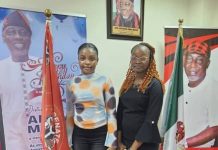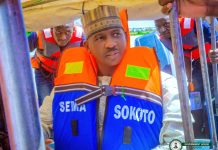The National Institute for Legislative and Democratic Studies (NILDS) will sponsor 23 Nigerian lawmakers on foreign trips for leadership and capacity-building training in the next few weeks.
The Director-General of NILDS, Abubakar Sulaiman, disclosed this on Thursday in Abuja at the opening of a two-week workshop for personnel of the ECOWAS Parliament on Parliamentary Oversight Functions, Votes and Proceedings.
Mr Abubakar, a professor of political science, explained that the lawmakers, drawn from both the Senate and House of Representatives, would participate in the training with a view to enhance legislative competence and deepen democratic governance.
He was, however, silent about the cost of the trip and the country the training will be conducted.
“In two weeks’ time, we are going to be taking 23 senators and House of Representatives members for a training outside the country. You can’t imagine how much it’s going to cost this government to do that. I cannot even disclose it,” he said.
The DG noted that NILDS’ mandate extends beyond Nigeria but to strengthen legislative institutions across the ECOWAS region.
“Our mandate is not just about nurturing the skills of the Nigerian parliament but also those of the ECOWAS Parliament. Democracy in Africa cannot be nurtured if we leave out the key personnel that support law-making across the sub-region,” he added.
Foreign leadership training for Nigerian lawmakers has been a regular practice since the early 2000s, when the National Assembly began collaborating with international institutions and parliamentary organisations.
These trips, often organised by the National Institute for Legislative and Democratic Studies (NILDS) or funded by donor agencies, are aimed at enhancing legislative skills, strengthening oversight capacity, and improving policy analysis.
NILDS and the National Assembly management have repeatedly said that exposure to advanced democracies gives lawmakers the opportunity to learn modern legislative tools, broaden their perspectives through comparative studies, and adopt global best practices in parliamentary procedure, constituency engagement, and lawmaking.
However, critics argue that the benefits of such foreign trainings have not translated into meaningful reforms within Nigeria’s parliamentary system. Many claimed that the training sessions are sometimes more ceremonial than genuinely transformative.
ECOWAS Parliament speaks
Mohamed Garba, director of Parliamentary Affairs and Research, who represented ECOWAS Parliament at the workshop, commended NILDS for its deep understanding of West Africa’s legislative needs and its partnership with the regional body.
“We have had a long-standing relationship with NILDS since 2004. Our parliamentarians and staff have benefited from several trainings in the past, both local and international. NILDS knows the ECOWAS Parliament more than any other resource persons elsewhere,” Mr Garba said.











